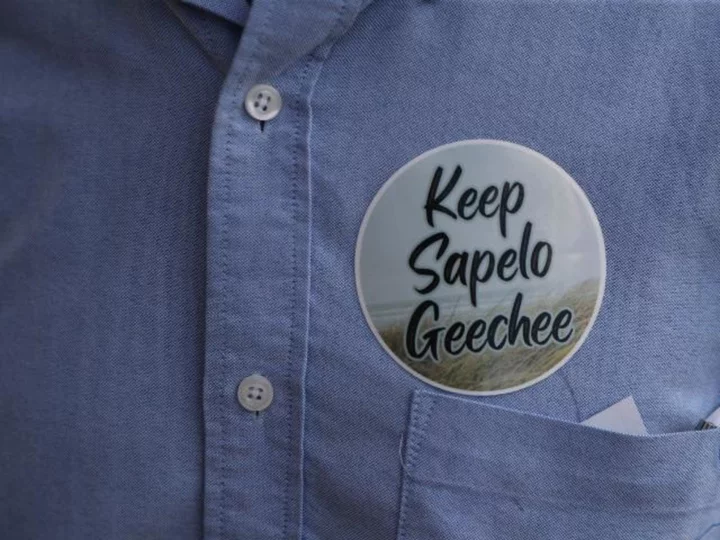Descendants of enslaved Africans on Georgia's Sapelo Island -- one of the last intact Gullah Geechee communities in the state -- are worried their cultural heritage and property could soon be lost after city officials voted to change the island's zoning laws.
Historians believe Hogg Hammock, on Sapelo Island, is one of the last surviving Gullah Geechee communities in the Georgia Sea Islands. The Gullah people are descendants of Africans who were enslaved on coastal plantations in the South and retain many of their African cultural traditions and languages.
On Tuesday, the McIntosh County Board of Commissioners voted 3-2 to change the zoning ordinance in Hogg Hammock. The new ordinance includes raising the maximum square footage of a heated-and-cooled house from 1,400 to 3,000, according to a statement released ahead of a public hearing on the ordinance last week from McIntosh County Manager Patrick Zoucks.
The limit on square footage "was imposed in what appears to be a good faith effort to control property values and deter the construction of large residences. Unfortunately, there was little consideration for the enforceability of this provision," Zoucks wrote, noting it is "impossible" to control if people add heating or cooling to their homes after moving in.
Sapelo Island descendant Josiah "Jazz" Watts, 52, told CNN the county's zoning plan "shocked us all," saying residents are concerned the new changes will allow the wealthy to build properties in the community and lead to high property taxes.
"We weren't given the opportunity to be included in the process of a zoning ordinance that will directly impact us," Watts said on Wednesday. "The people who are going to be mostly impacted negatively impacted by all this are the Geechee descendants on the island."
Watts added that a number of residents are older and on fixed incomes: "Where are people going to get the additional income to keep up with paying that tax? You're not gonna be able to."
Enslaved people were brought to Sapelo Island in 1802 and their descendants still live in the Hogg Hammock community, which spans nearly 400 acres and is only accessible by boat or ferry, according to the Sapelo Island Cultural and Revitalization Society.
Maurice Bailey, a local historian and ninth generation Hogg Hammock resident, said only 29 original descendants are left in the community. He estimates descendants own 63% of the properties and 75% of the acreage on Sapelo Island.
"People have witnessed their communities being taken away from them. And they've been fighting for this community for a long time," said Bailey, who is also president and CEO of the Save Our Legacy Ourself organization, which aims to preserve the heritage of the Geechee people.
But now, he said, many Hogg Hammock residents have grown discouraged.
They are thinking of selling their land because "they can't win," he said. "We wouldn't be in all this mess if we didn't start selling land to the outside people."
Bailey said his mother, celebrated Gullah Geechee writer and activist Cornelia Walker Bailey, frequently warned against selling their property and cultural inheritance. "She would always say, 'Don't sell your land. If you really want to hold on to who you are, don't sell your land'," he said.
McIntosh County Board of Commissioners Chairman David Stevens and Zoucks, the McIntosh County manager, did not respond to CNN's requests for comment.
In his statement, Zoucks said the proposals in the zoning regulations were of the "best interest" of Hogg Hammock residents and the county.
Watts said he and others in the community plan to appeal the zoning ordinance. "We're fighting because ... it's just wrong," he said.
Sapelo Island residents aren't the only ones fighting against what what critics have called an expropriation of Black-owned land.
Josephine Wright, a 93-year-old Black resident of Hilton Head Island, South Carolina, is in a legal dispute with a property developer seeking to build a residential development next door to her family's land.

